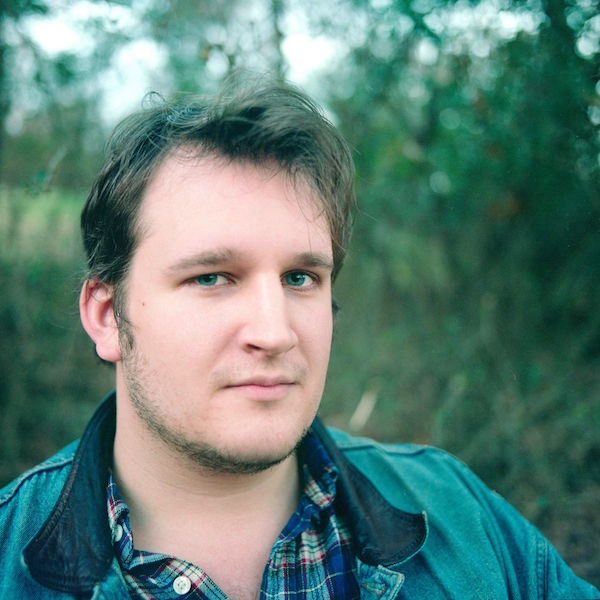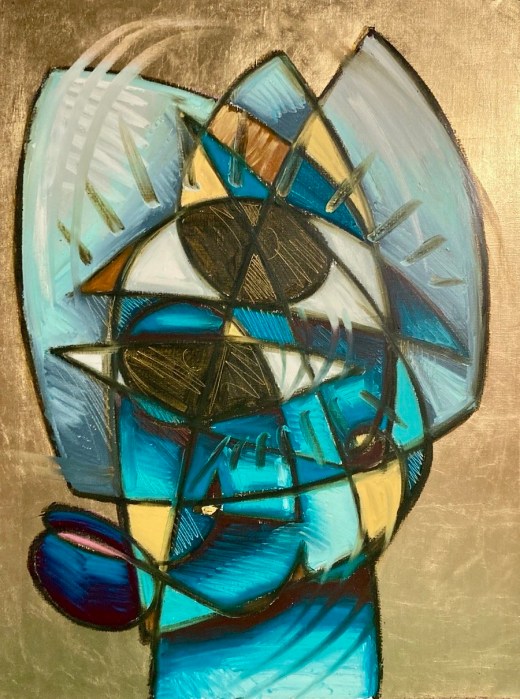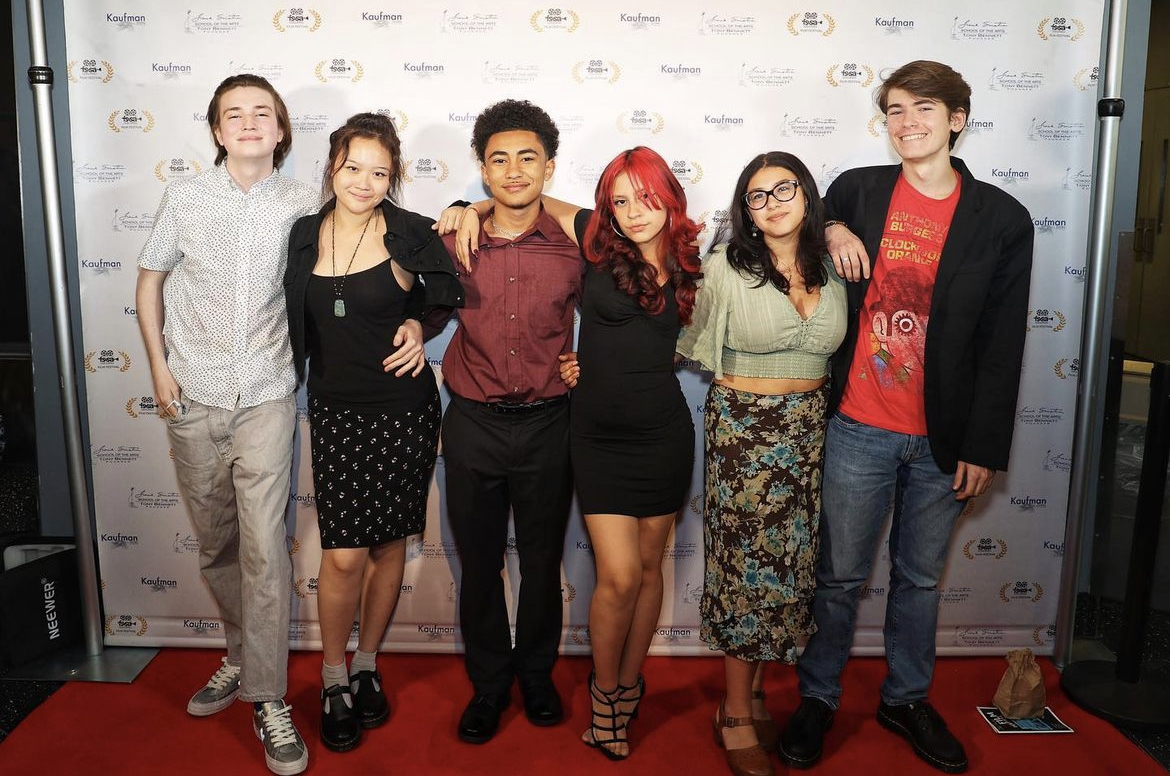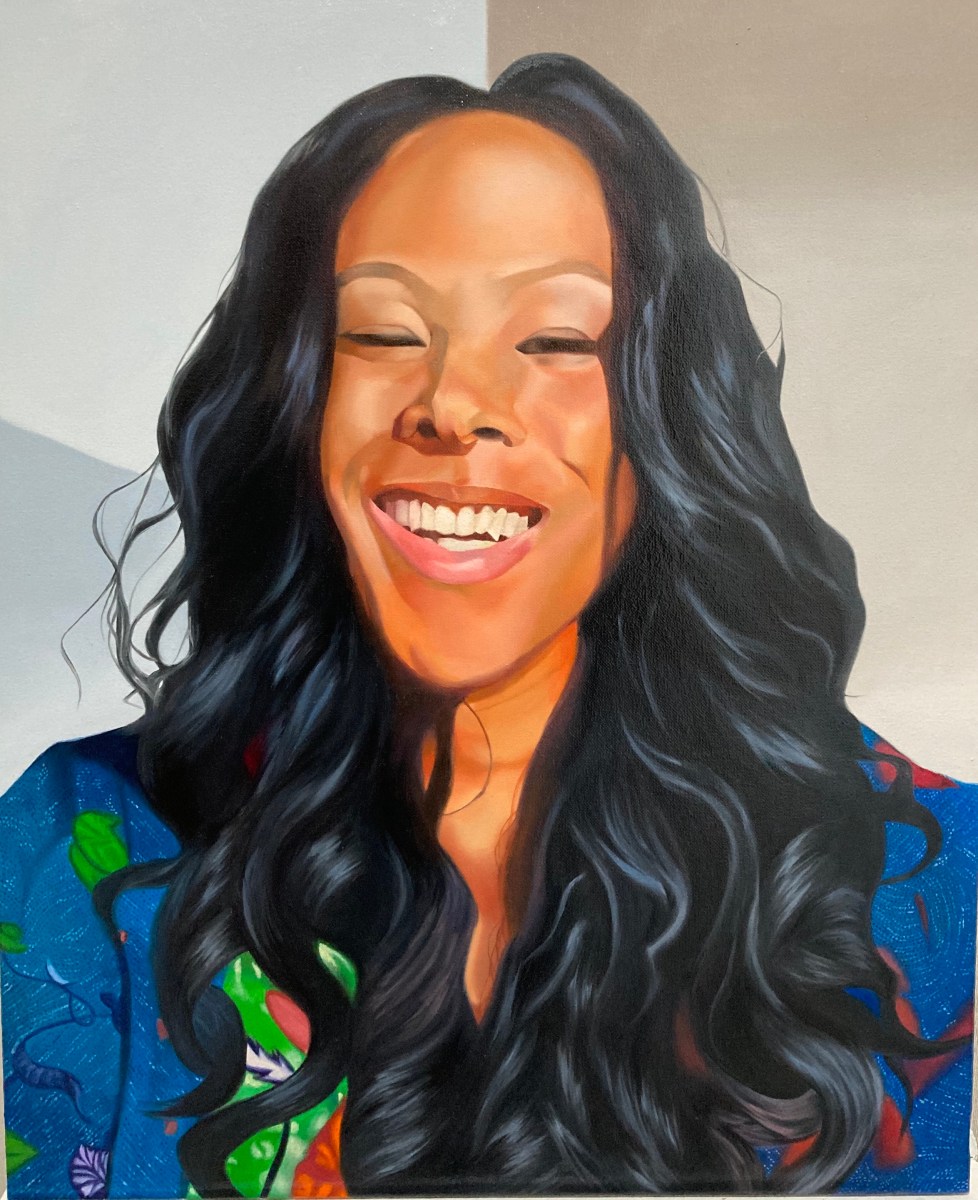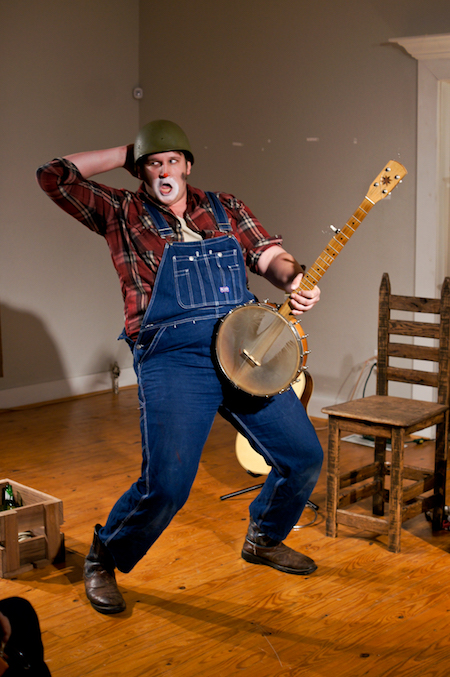
BY TRAV S.D. | In times of political tumult in America an interesting, possibly counterintuitive, thing seems to happen: a revival of interest in traditional American folk culture. During the Great Depression, musicians like Woody Guthrie and The Weavers revitalized American roots music while folklorists like Alan Lomax captured oceans of elusive human culture in notebooks, on film, and on audiotape.
A similar burst of energy happened three decades later during the civil rights movement and the Vietnam War. And we are in the midst such an upswell now. One manifestation of the current Renaissance of Americana is Arkansas-based folksinger, poet, musician, theatre artist, scholar and square dance caller Willi Carlisle, whose new theatre piece “There Ain’t No More!” will be presented in NYC June 29 and June 30.
That word “Renaissance” is not inappropriate to describe Carlisle’s work. He has an MFA in poetry, a BA in creative writing and performance studies (including theatre training), plays fiddle, banjo, and guitar, has done fieldwork in the collection of folklore, and several of his scholarly essays have been published. He looks and sounds like Larry the Cable Guy’s brother, yet in conversation refers to his immersion in Jerzy Grotowski and mask work.
In “There Ain’t No More!” he is collaborating with director Joseph Fletcher, founding member and artistic producer of the Artist’s Laboratory Theatre in Fayetteville, Arkansas. To hear that there is such an organization in the Ozarks is to observe the eternal verity of Bob Dylan’s refrain: “The Times They Are A-Changin’.”
“There Ain’t No More!” is a solo theatre piece mixing elements of storytelling, folk song, clown, and even puppetry to take the audience on a journey into the dark heart of what Greil Marcus called “the old, weird America.” Carlisle calls it a “folk operetta.”
Interest in folk culture comes naturally to Carlisle, who is originally from Wichita, Kansas. “My father played in bluegrass bands but he didn’t want me to follow in his footsteps,” Carlisle said. “He found it to be a beer-soaked experience. But I heard many stories about the cowboy singers he played with. It became a kind of obsession for me because it was a secret world, closed off. Later, when I went to college [Knox College, Galesburg, Illinois] I learned that the poet Carl Sandburg, who was from the area and whom I was a fan of, sang and collected folk songs and this fed into it.”
For the past six years, Carlisle has made Fayetteville his home base, playing music, collecting folklore, and immersing himself in the local culture, and occasionally working with the Artist’s Laboratory Theatre, a “community-centric, site-specific” theatre company that specializes in devised pieces.
“I was more editor than director when we started this process,” quipped Fletcher. According to both collaborators, they began the process with what Carlisle described as a “massive document” — 100 pages of text, including poems, academic essays, transcriptions of collected folk material, and song lyrics. Out of this emerged a narrative arc from the point of view of an elusive folk musician told through shifting formal strategies ranging from fiddle tunes to puppetry. “We chose the strongest iteration of each form,” Carlisle said, “and that helped determine the shape of the piece.” While the identity of the singer is left ambiguous, he is also a very specific TYPE. And this is where the timelessness of the piece couldn’t be more timely.
Said Fletcher, “This play is about a type of people who from a distance could be either Bernie or Trump supporters. American socialism originally came from farm country and rural communities. Positive and negative sides to it go hand in hand. Folk culture and tradition have beautiful aspects and qualities like community and sharing, but can also come with things like racism and sexism that make maintaining it problematic now. A lot of the old-time culture is super-conservative in the modern context. This show talks about some of the problems with that.”
Added Carlisle, “A reviewer wrote recently about how at the beginning of the show I turn around, and I’m this old man in a mask with this gravelly voice and the writer found the image terrifying. He was expecting ‘The Texas Chainsaw Massacre’ and was relieved when I turned out to be funny, looking like I look. There’s a way in which people in larger communities can look down on rural people. But there’s a value in vernacular culture. I’m looking for a way to work back to the positive elements of traditional culture, telling the story of these people compassionately, and hopefully exploding the impression that writer initially had. We can choose the culture we come from. We can choose to foster an inheritance that’s different from the one that’s pushed at us by corporate capitalism.”
“There Ain’t No More” has two performances. Thurs., June 29, 8pm at UNDER St. Marks (no wheelchair access; 94 St. Marks Place, btw. First Ave. & Ave. A). For tickets ($20), visit horsetrade.info. Then, on Fri., June 30, 8pm at Ryan’s Daughter (350 E. 85th St. (btw. First & Second Aves.), presented as a double bill with “The Legend of White Woman Creek.” For tickets ($25), brownpapertickets.com/event/3002673. Artist info at willicarlisle.com.
